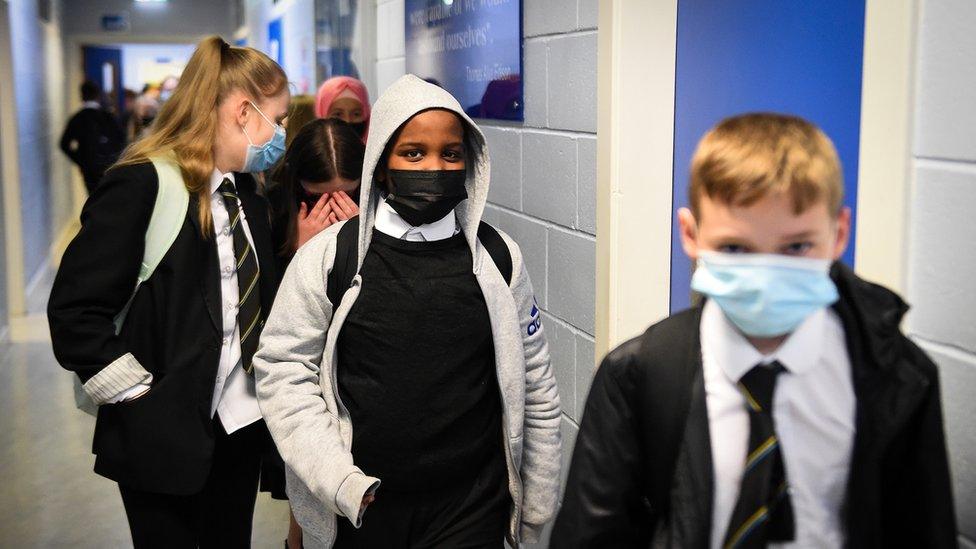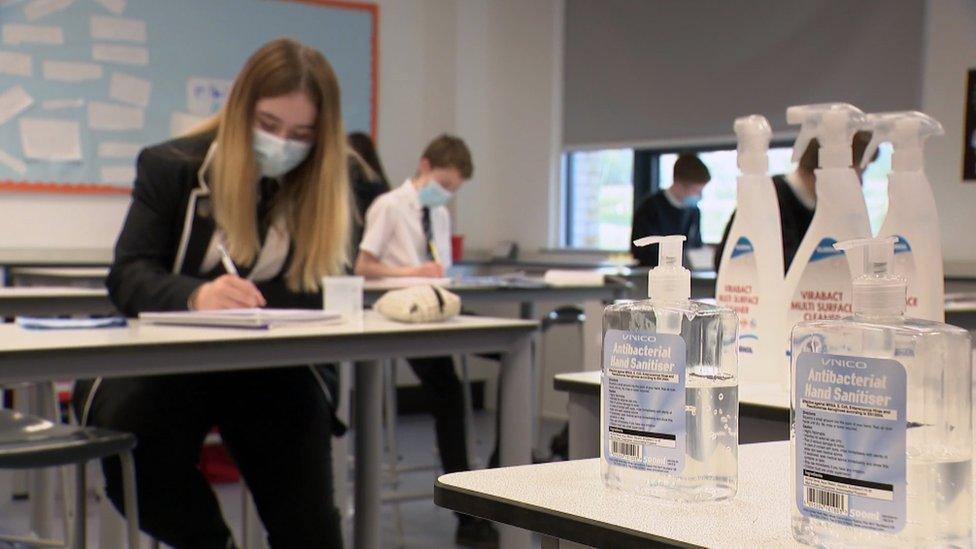Covid in Scotland: Swinney defends school holiday decision
- Published

The education secretary has defended the decision not to extend the school holidays, insisting it was based "entirely on public health advice".
John Swinney said there was concern a longer Christmas break could increase transmission out of school.
Ministers considered but then rejected a nationwide shutdown of schools from December 18 to January 11.
Teachers' leaders have expressed disappointment, pointing out the extra workload created by contact tracing.
Both the EIS and NASUWT unions argued that a move to remote learning for a few days before and after the normal scheduled break would have been a safer.
With some schools due to continue as late as 23 December, concern has also been raised that some staff could find themselves working in the holiday period.
'Organised environment'
At the Scottish government's daily coronavirus briefing on Friday, Mr Swinney insisted the decision was solely based on health advice.
He said: "I published the public health advice that I have received on this question, which comes down to one critical point - which is that we can minimise the transmission of the virus between young people if they are in an organised environment like a school as opposed to being in home or community settings.
"To essentially tip the balance and to put more young people into a community setting would be to go against that public health advice.
"So there's no politics involved in this, it's public health advice that I am following."

John Swinney said he had been advised that formal school settings are less risky than less supervised interaction
Regional variations in term dates mean that while some schools break up on 18 December, others are not due to finish until just two days before Christmas.
Mr Swinney said the government was working with Public Health Scotland and the National Contact Tracing Centre to make sure "all school staff and all school teachers can get the break to which they are entitled over the festive season".
He added: "Obviously I appreciate that some of those closing dates are getting quite close to Christmas Day."
Jane Peckham, from the Scotland branch of the NASUWT said the rumours about a possible extension to the Christmas break had raised expectations and anxiety among the teaching profession.
She said: "This announcement yesterday indicates yet again that government have no intention to use the promised contingency of blended learning, even in the highest Covid-19 level areas.
"Remote learning could have been a solution to maintaining education provision whilst reducing the risk of virus transmission in the run-up to Christmas.
"Ministers now need urgently to set out what arrangements should be in place to support those having to manage the Test and Protect system over Christmas."
Extra hours
The EIS teaching union said school management teams were often working long additional hours due to the demands of contact tracing.
Lorraine McBride, convenor of the union's head teacher and deputy head teacher network, said: "It is concrete support that we need - not just fine words from the Scottish government or our employers telling us how much they appreciate us."
She said many head teachers and deputies were "devastated" by the decision not to move to remote learning for the final week of term.
"This decision means that, where positive cases are identified late, school management teams may be expected to deliver or support contact tracing work over the Christmas period," she added.
"The Scottish government's decision also significantly increases the risk of pupils and staff taking the virus into their homes, or into the homes of potentially vulnerable family members, during the festive period."
Mr Swinney, who is also deputy first minister, used the daily briefing to announce an extension of rates relief for nurseries.
The move means 100% relief on non-domestic rates for nurseries until at least June 2023.
The relief began in April 2018 and had been due to end in March next year.

